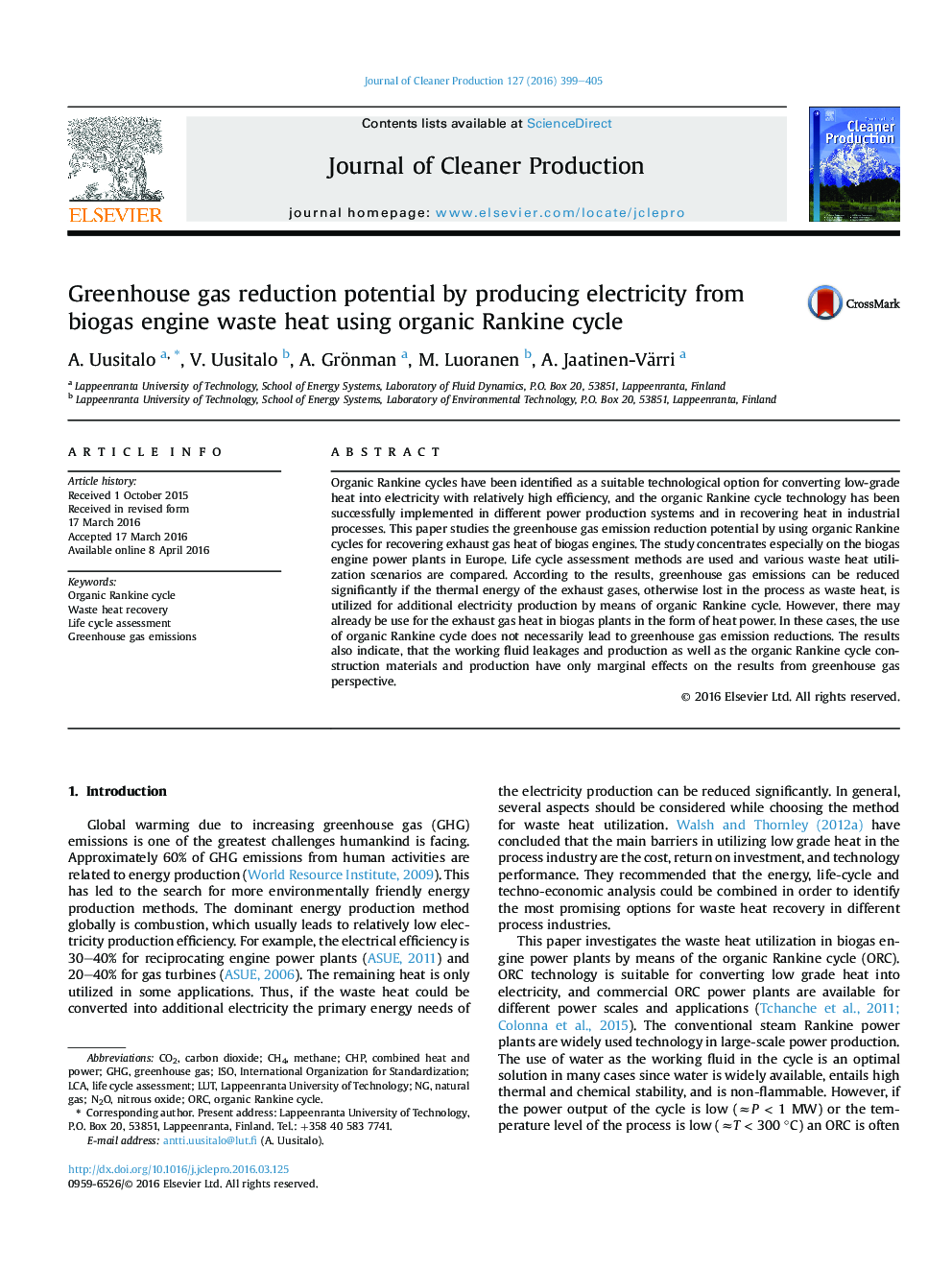| Article ID | Journal | Published Year | Pages | File Type |
|---|---|---|---|---|
| 1744098 | Journal of Cleaner Production | 2016 | 7 Pages |
•Waste heat recovery of biogas engines was studied by means of ORC.•LCA was utilized to calculate GHG emission reduction potential in different cases.•Using waste heat in electricity production leads to GHG emission reductions.•If heat is already utilized there is a risk that GHG emissions increase with ORC use.
Organic Rankine cycles have been identified as a suitable technological option for converting low-grade heat into electricity with relatively high efficiency, and the organic Rankine cycle technology has been successfully implemented in different power production systems and in recovering heat in industrial processes. This paper studies the greenhouse gas emission reduction potential by using organic Rankine cycles for recovering exhaust gas heat of biogas engines. The study concentrates especially on the biogas engine power plants in Europe. Life cycle assessment methods are used and various waste heat utilization scenarios are compared. According to the results, greenhouse gas emissions can be reduced significantly if the thermal energy of the exhaust gases, otherwise lost in the process as waste heat, is utilized for additional electricity production by means of organic Rankine cycle. However, there may already be use for the exhaust gas heat in biogas plants in the form of heat power. In these cases, the use of organic Rankine cycle does not necessarily lead to greenhouse gas emission reductions. The results also indicate, that the working fluid leakages and production as well as the organic Rankine cycle construction materials and production have only marginal effects on the results from greenhouse gas perspective.
